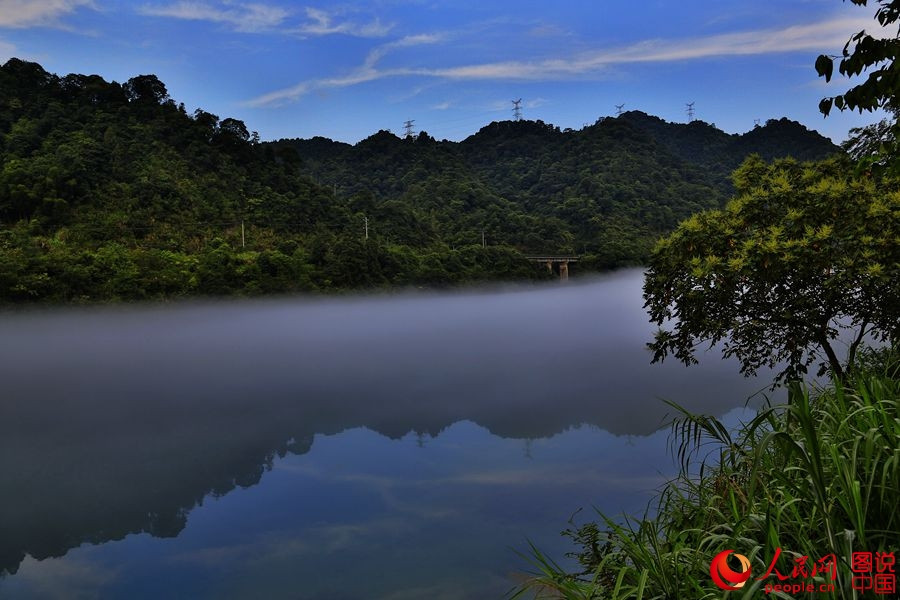 Vintage cars show kicks off in London
Vintage cars show kicks off in London
 Gorgeous scenery in NE China
Gorgeous scenery in NE China
 Picturesque Barkol grassland in Xinjiang
Picturesque Barkol grassland in Xinjiang
 Small Wild Goose Pagoda - A World Cultural Heritage Site along the Silk Road
Small Wild Goose Pagoda - A World Cultural Heritage Site along the Silk Road
 Maritime Silk Road Luxuries of the Han Dynasty
Maritime Silk Road Luxuries of the Han Dynasty
 Ciao! Chinese beauties!
Ciao! Chinese beauties!
 An eye feast: BFA freshmen registration
An eye feast: BFA freshmen registration
 Top 10 most lavish weddings
Top 10 most lavish weddings
 Most amazing chi-pao beauties
Most amazing chi-pao beauties
 Chinese lingerie brand arrives in Las Vegas
Chinese lingerie brand arrives in Las Vegas
WASHINGTON, Sept. 25 -- Up to half of the water on Earth, including the water in your bottle, is likely older than the solar system itself, a new study said Thursday.
The study, published in the U.S. journal Science, raised hopes that life could exist on exoplanets, the planets orbiting other stars in our galaxy, because all life on Earth depends on water.
Water is found throughout our Solar System. Not just on Earth, but on icy comets and moons, and in the shadowed basins of Mercury. Water has been found included in mineral samples from meteorites, the Moon, and Mars.
But it was unclear whether the water was born with the solar system itself -- in the planet-forming disk of dust and gas that circled the young Sun 4.6 billion years ago, or whether the water originated even earlier -- in the cold, ancient molecular cloud that spawned the Sun and that planet-forming disk.
Ilse Cleeves of the University of Michigan and his colleagues created a model to simulate the chemistry that was present as our solar system formed and focused on the ratio of two slightly different varieties of water: the common kind and a heavier version.
Water from the molecular cloud that created our solar system has a higher ratio of heavy water than the Sun contains, because it forms at very low temperatures.
Today, ices on comets and asteroids, which provide a natural " time capsule" of the conditions during the early days of our Solar System, also have higher ratios of heavy water than the Sun contains.
But they found their model that zeroed out the heavy water could not reach the ratios of heavy water that are found in meteorite samples, Earth's ocean water, and "time capsule" comets.
"We let the chemistry evolve for a million years -- the typical lifetime of a planet-forming disk -- and we found that chemical processes in the disk were inefficient at making heavy water throughout the solar system," said co-author Ted Bergin, a professor of astronomy at the university.
"What this implies is if the planetary disk didn't make the water, it inherited it. Consequently, some fraction of the water in our solar system predates the Sun."
Further research showed that between 30 and 50 percent of the water on Earth came from the cold molecular cloud.
"So, it's true that the water in your bottle might be older than the Sun," co-author Du Fujun of the university told Xinhua.
Identifying the original source of Earth's water is the key to understanding how likely they are to be found elsewhere, the researchers said.
"If our solar system's formation was typical, this implies that water is a common ingredient during the formation of all planetary systems," Cleeves said. "The widespread availability of water during the planet-formation process puts a promising outlook on the prevalence of life throughout the galaxy."
 Century-old public bath closes door in Beijing
Century-old public bath closes door in Beijing Military training in Hong Kong
Military training in Hong Kong Teahouses in Chongqing: Worship to the leisure lifestyle
Teahouses in Chongqing: Worship to the leisure lifestyle Giant white gourd weighing 87 kilograms appears in SE China
Giant white gourd weighing 87 kilograms appears in SE China Advanced arms help to safeguard China-ASEAN Expo
Advanced arms help to safeguard China-ASEAN Expo Leading director Wang Quan'an detained for 'buying sex'
Leading director Wang Quan'an detained for 'buying sex' Heaven on earth: Dongjiang Lake in Hunan
Heaven on earth: Dongjiang Lake in Hunan Mixed reaction to smartphone sidewalk
Mixed reaction to smartphone sidewalk Amazing aerial photos of China's Xisha Islands
Amazing aerial photos of China's Xisha Islands Lingerie show at 2014 Miss China
Lingerie show at 2014 Miss China Songstress Li Xianglan dies at 94
Songstress Li Xianglan dies at 94 Police recruiting posters
Police recruiting posters Anshun Daxi- Living fossil of Chinese drama
Anshun Daxi- Living fossil of Chinese drama Urban farmers in China
Urban farmers in China 'Firepower-2014 Weibei'military exercise
'Firepower-2014 Weibei'military exerciseDay|Week|Month